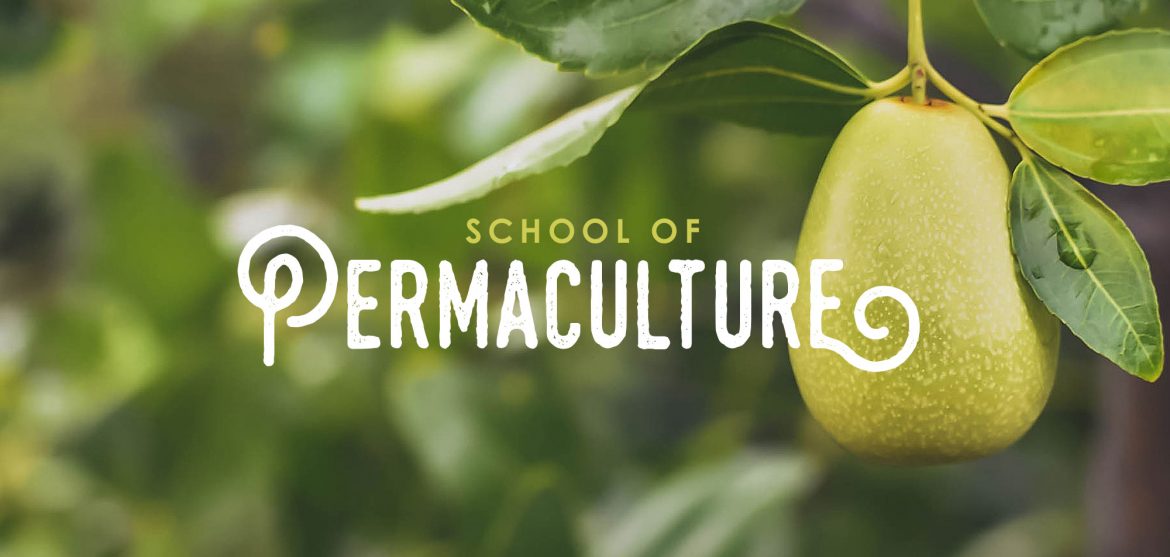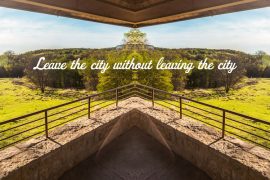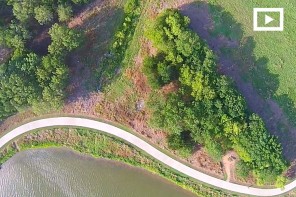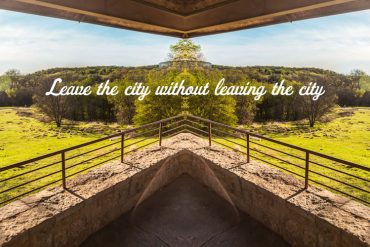A food forest grows in suburbia.
There’s a house in Plano, a suburban oasis, where lives are being reshaped. Nicholas and Kristi Burtner, Plano residents and newlyweds, are leading the way to readjusting our city’s environmental landscape through their School of Permaculture. The school is a non-profit organization that educates individuals to rethink how they interact with the environment and to work in harmony with natural systems.
Nicholas, director and co-creator of the School of Permaculture, has had a world-wide education in permaculture. He has trained in Australia, Haiti and New Mexico, to name a few locales. Texas is his home though, and in 2012 he saw a need and opened the school.
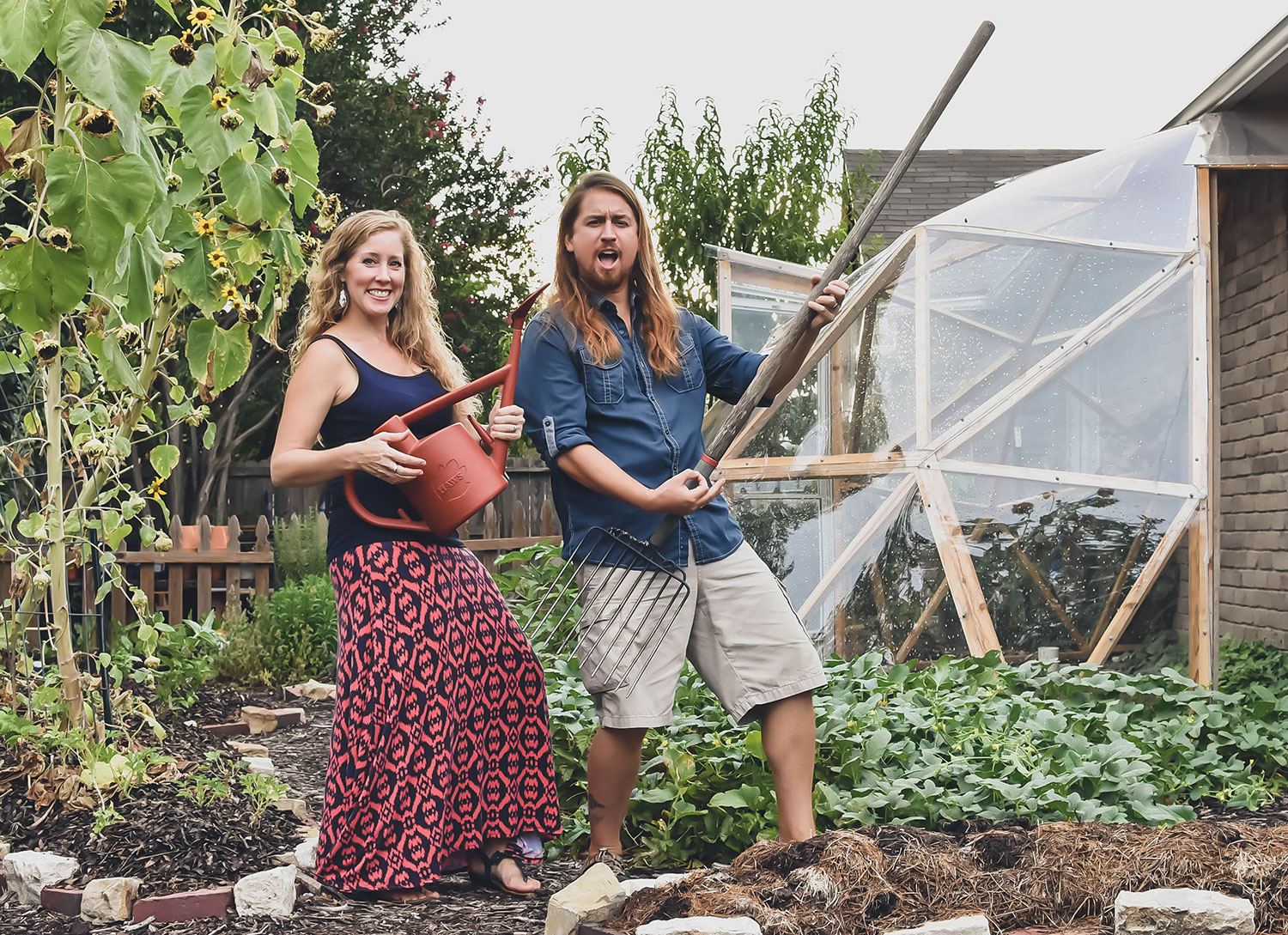
The School of Permaculture is multifaceted—it includes a suburban Plano home, a farm site, a traditional classroom setting at the Plano Environmental and Educational facility and an extensive online community. Nicholas and Kristi are utilizing multiple avenues to reach the community in order to educate and enrich lives.
The surburban Plano home site is where individuals go for a smaller, hands-on educational experience. They come here not only for more intimate instruction but also for a chance to get their hands dirty. There is a farm demonstration site in the works. It will be for rural education and hands-on experience as well, with hopes of expanding it to include classes, live-in apprenticeships and more.
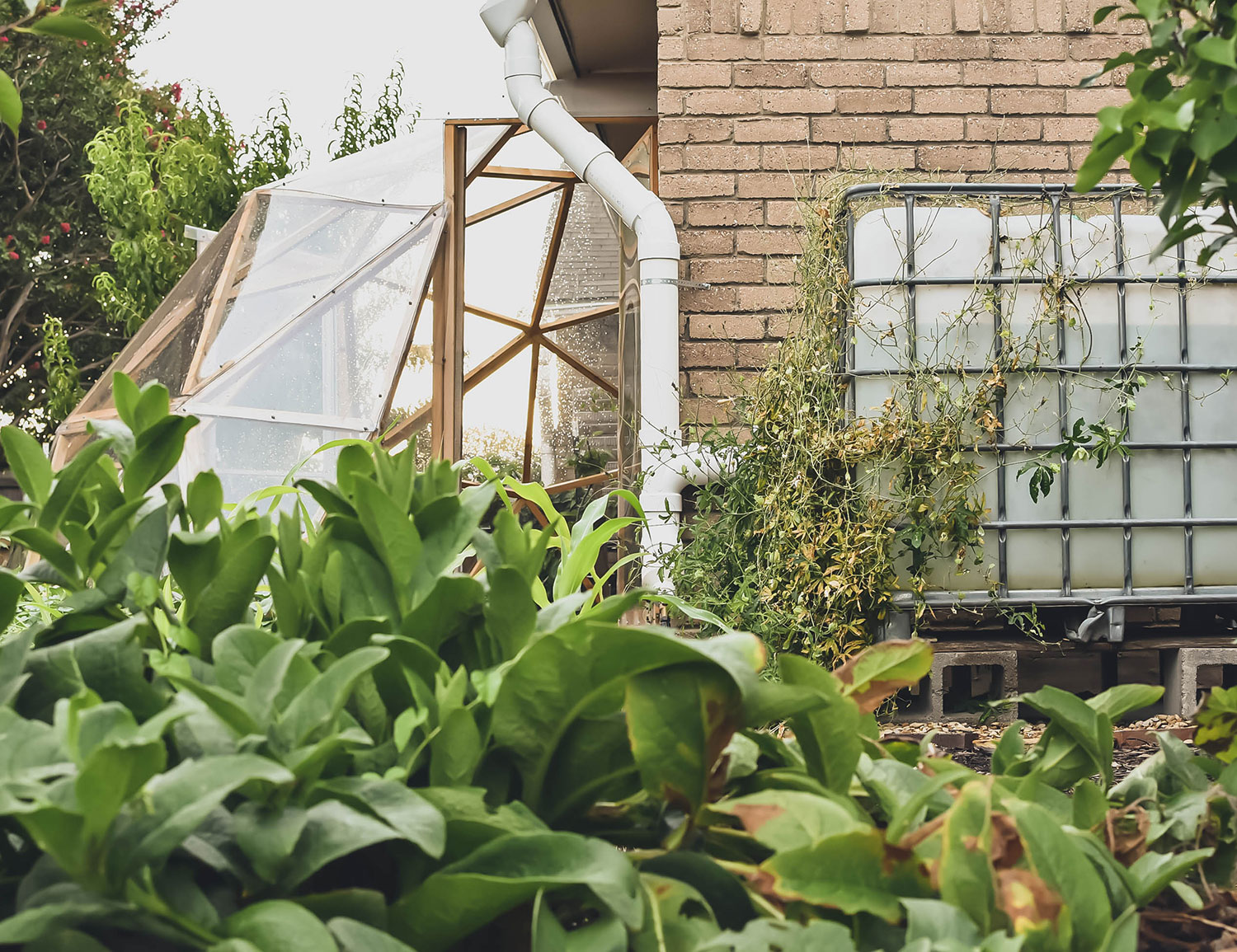
Then there is a traditional classroom setting where the School of Permaculture works with the City of Plano to put on larger classes, like the Permaculture Design Course. A variety of courses is offered, from a free introduction course, to Whole Systems Gardening, to Wild Edibles, among others.
It’s easy to get behind a banner of environmental change, especially one that promotes harmony with natural surroundings. But what is permaculture really?
“Permaculture makes beneficial relationships within the human habitat,” Nicholas explains. Kristi continues to expound that permaculture is “a state of mind, how you see and interact with your surroundings. Permaculture is not just gardening, food and animal systems. It’s people, it’s systems—from recycling to desiring a zero waste life, to canning and storing food.”
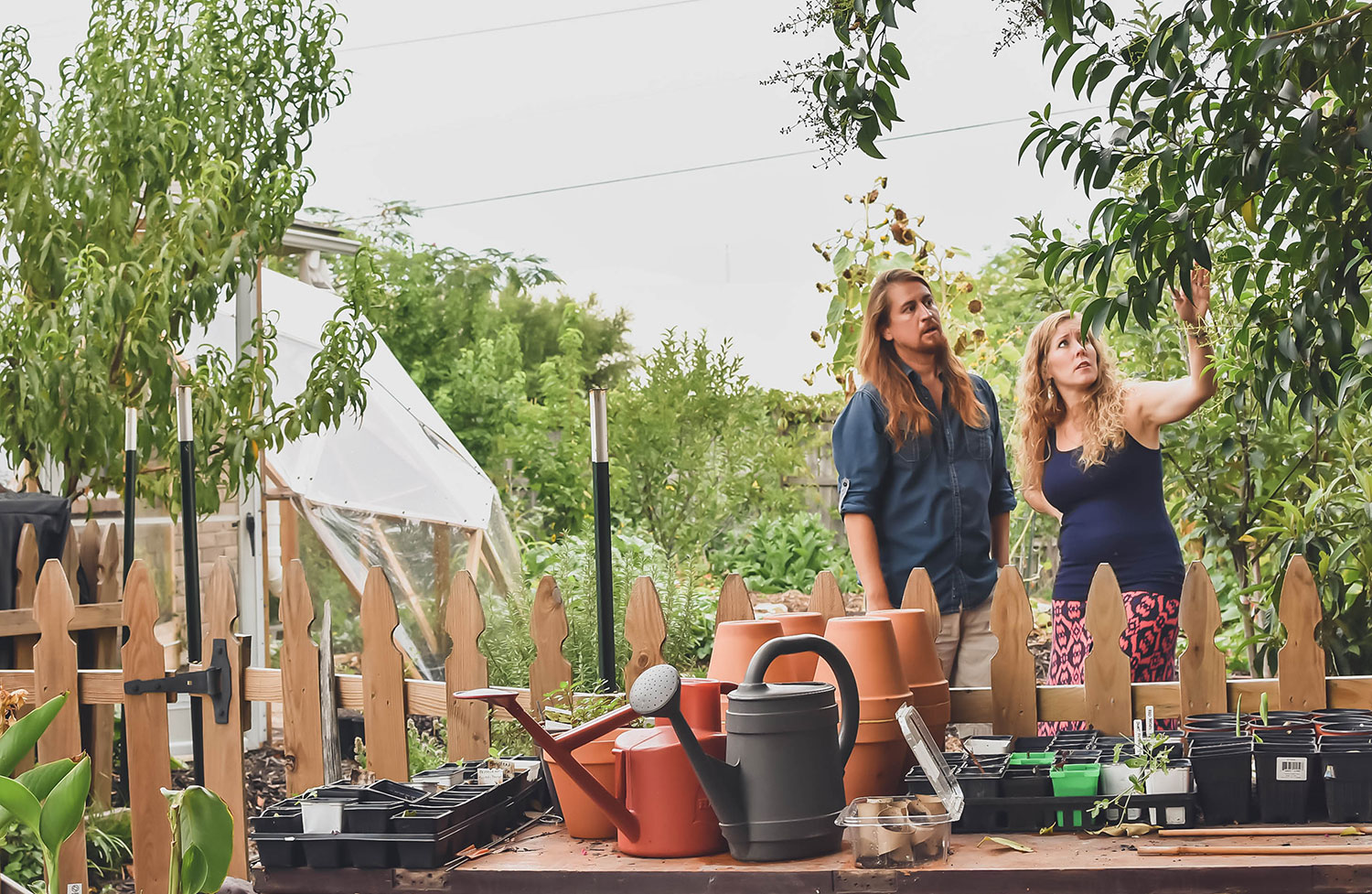
Nicholas saw the pitfalls of a life behind the computer, a life he lived for more than 10 years. “I saw the shortcomings of that lifestyle. Permaculture offers tools that seem to be in opposition of what our current societal norms are. However, once you truly look at them it doesn’t make sense to live another way.”
Nicholas and Kristi are not just growing a way of life, they are growing people. This non-profit is also a Christ-centered ministry that welcomes all walks of life and faiths. “We are pretty much pastors, so if we knew a better way other than permaculture to live out Jesus’ commandment of loving others…we’d be doing it,” Nicholas shares. “As Jesus did, we love all people. That means we not only welcome but encourage people of all walks of life and faith to come to our classes and be a part of this growing community of people making a change.”
The School of Permaculture has baby steps to help you get started on the path to permaculture:
- Educate: Learn the skills and gain the mindset that will lead to an abundant future for our children.
- Produce: Start producing your own resources with a small garden or perhaps backyard chickens. It’s currently illegal to have chickens within Plano’s city limit, but as Nicholas says, “Let’s change that!”
- Recycle: Repurpose everyday items such as turning a plastic water bottle into a self-watering seedling pot.

